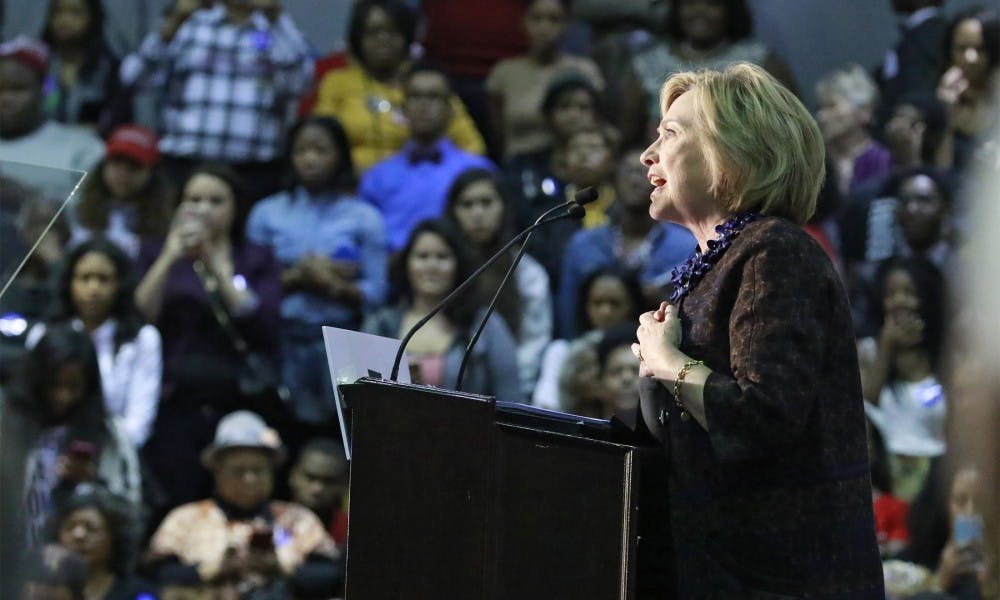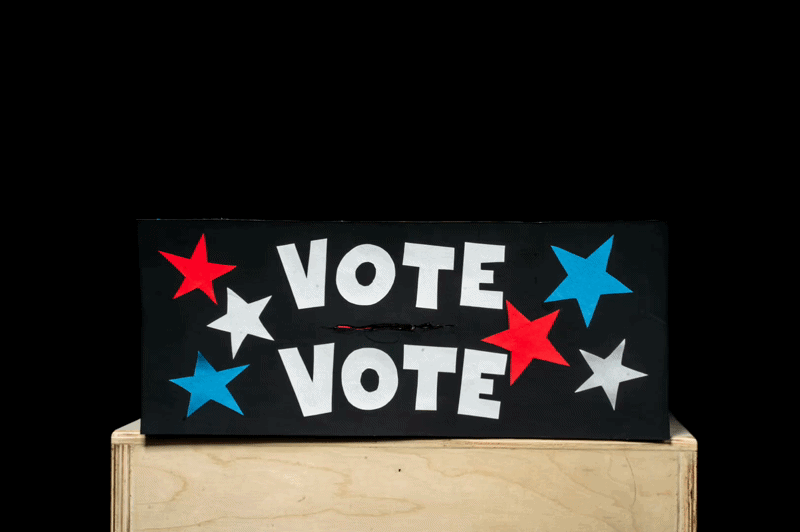In just over 100 days Americans will flock to the polls to vote for the next leader of the nation. Many will vote along party lines — lines determined only months prior. They’ll vote mainly for two candidates — candidates given the final party blessing only those same amount of months earlier.
After over a year of campaigning, bickering, mudslinging, discussion and vying for spots to nominate the potential president, it comes down to two weeks in July to cement platforms, policies and presidents in hopes of creating a new American future or re-upping and sustaining the current one.
In just four days, Quicken Loans Arena in Cleveland, home to the Republican National Convention, will be filled with thousands of GOP delegates hoping to return their party to the White House. Four days after the GOP convention concludes, the Democrats will stage their strategy in Philadelphia, vying to retain the White House and ensure the American people that the future continues to lie in their leadership’s hands.
Here’s what is important to watch for and know as the conventions are set to begin.
The conventions
The main objective of a convention is to pick the man or woman who best represents the party ideas and nominate him or her as the candidate of said party.

After capturing the delegates needed following victories in primaries and caucuses, Donald Trump and Hillary Clinton are the presumptive nominees for the Republican and Democratic parties respectively. They are expected to receive confirmation as each party’s nominee at the conventions.
Though naming a presidential candidate is the primary purpose, the conventions have taken on more grandeur over the years.
Nowadays, delegates on committees within in the convention have largely been responsible for creating party platforms and rules governing the conventions. Those committees primarily meet before the convention.
The Republicans met earlier in the week to discuss the 2016 platform and the Democrats polished theirs last week.
“Meshawn Maddock and Joe Hune, they’ve been doing a tour, kind of, across the state talking to folks to see what kind of input they have for that platform,” Michigan Republican Party spokeswoman Sarah Anderson said.
The focus this year will be on how much the public voice has been listened to. On one end, some of the Republican establishment has been leading a charge to unseat Donald Trump from his presumptive nominee position.
While many delegates are bound by state laws to vote for the candidate they are pledged to, the party could vote to allow the delegates to become unbound and vote for whomever they choose. Thus it would circumvent the will of the people who overwhelmingly voted for Trump.
Thank you! #ImWithYou pic.twitter.com/6XkUQ0W4QS
— Donald J. Trump (@realDonaldTrump) July 13, 2016
When it comes to the Democrats they’ve unrolled what they have called their “most progressive platform” in the history of the party. The reason behind this has partially laid with the popularity of the ideals of Bernie Sanders and his push for those ideals to reach the platform.
Outside of the rules and platforms being unveiled, the conventions host a wealth of speakers. Included in the GOP speaking docket, thus far, are former primary rivals of Trump’s, Ben Carson, Mike Huckabee and Ted Cruz. Also speaking will be former college basketball coach Bobby Knight, U.S. Sen. Joni Ernst, Michigan Attorney General Bill Schuette and members of the Trump family.
The speakers for the Democrats have yet to be announced but conventional wisdom would suggest President Obama will give a speech as he has recently made a campaign appearance alongside Hillary Clinton.
Schedules have yet to be released for the daily events for both conventions. However the polarizing election has revved up the activist appeal and many groups will be traveling to the streets of Philadelphia and Cleveland to protest.
The Platforms
A political party platform, the set of principles, goals that extends an arm to the public, sets the foundation for a presidential run.
“The parties are writing platforms as a sort of document to share their issue positions and principles with the electorate and with themselves,” Director of the Institute For Public Policy and Social Research Matt Grossmann said.
Platform goals can be united or battled over depending on the circumstances of the policies.
“There used to be fairly public and somewhat important battles over platform language,” Grossmann said.
In America, we're always stronger together. pic.twitter.com/s9wAMfIywe
— Hillary Clinton (@HillaryClinton) July 13, 2016
Grossmann said the platforms are less controversial than in the past. He said the platform are like “marketing documents” that are used to present their goals to the members of the party and voters.
In other countries’ political parties, manifestos are produced which puts platforms on the international spectrum, Grossmann said.
“No one is directly accountable for anything written in the platform,” Grossmann said. “The positions come first and then they are written into the platforms. There’s been large change depending how far you go back.”
The Republican Party changed its position on education going from stating that the Department of Education should be eliminated to the next platform saying the federal role should be expanded, Grossmann said. He makes this comparison of Bob Dole and George W. Bush, 1996 to 2000 platforms.
He said the changes have been studied over time.
“The Republican Party used to articulate conservative principles, but its policy positions weren’t particularly conservative,” Grossmann said. “The Democrats used to always have liberal policy positions, but have increasingly adoptive conservative or less liberal over all rhetoric.”
Grossmann said Trump has a “hands-off” approach when it comes to the party’s platform.
Both parties have made slight and drastic changes over time through development. Sanders and Clinton have had a considerable affect on the party’s current platform.
“This is the first Democratic platform we’ve seen in a long time that seems to have been a fairly active point of discussion,” Grossmann said.

The route of progressive changes went from Bernie Sanders to Hillary Clinton to the party platform, Grossmann said.
Sanders endorsed Clinton during a rally in new Hampshire, this comes after Clinton had met with Sanders on different occasions.
“She will be the democratic nominee for president and I intend to do everything I can to make certain she will be the next President of the United States,” Sanders said, according to a livestream posted by The Hill.
Sanders withholding Clinton’s endorsement led her to adopt new policies including the $15 minimum wage, higher education reform and healthcare.
Six Michigan delegates sit on the Democratic National Convention Committee: Lena Thompson, Ron Owens, Liza Estlund Olson, Abby Dart, David Coulter and David Benac.
Two Michigan delegates, Sen. Joe Hune and Meshawn Maddock are serving on the GOP platform committee while Matt Hall and Judy Schwalbach serve on the rules committee.







